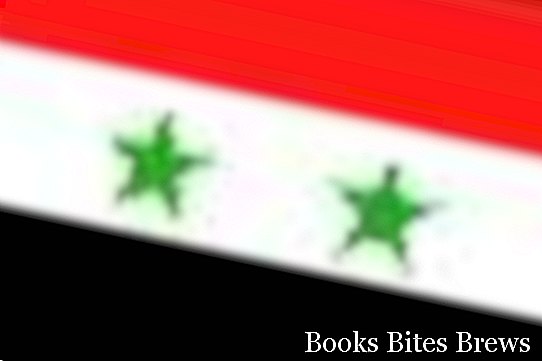Travel guide travel to Syria, all the important things to know before leaving for a holiday in this state in western Asia.
Syria in a nutshell
- Capital: Damascus
- Area in square kilometers: 185,180
- Population: 20,367,000 (2009)
- Religion: Muslim (Sunni majority), 10% Christian (Orthodox, Armenians, Catholics and Protestants) and small Jewish communities.
Where is it
The Arab Republic of Syria is located in western Asia. It borders Turkey to the north, Iraq to the east and south-east, Jordan to the south, Lebanon and Israel to the south-west, and is bordered by the Mediterranean Sea to the west for just 183 km. The narrow coastline and flat, it is delimited by the Alauita Chain which runs parallel to the coast up to the border with Lebanon, along which the Antiliban mountain chain winds with the highest peak in the country, Mount Hermon, 2,814 meters above sea level
To the south-west, the chain slopes down into the hilly region formed by the Golan Heights, while in southern Syria the volcanic group of the Gebel Drusus rises isolated. The interior of the country is mainly formed by desert tables, interrupted by fertile plains along the Euphrates and Orontes rivers.
Hydrography
The Syrian territory is crossed by two important waterways, the Euphrates and the Orontes. In turn, the Euphrates receives an abundant contribution of water from the Balîkh and Khabur tributaries. The border with Turkey for a short distance is marked by the Tigris river.
Climate
In the coastal area of Syria the climate is mitigated by the Mediterranean, between winter and summer there is not much difference in temperature. Winter is mild and rainy, summer hot and humid enough. A continental type climate with fairly harsh and rainy winters affects the mountainous area, while in the internal regions rainfall decreases. In summer it is hot and there is a lot of drought. Continuing east, on the planks, the climate turns into desert.
Population
The population is made up of Arabs, with minorities of Kurds, Armenians, Turks and others.
Time zone
In Syria, the time difference is 1 hour ahead of Italy. When in Italy there is summer time there is no time difference.
Spoken language
The official language of Syria is Arabic.
Economy
The agricultural sector employs about 30% of the active population and plays a very important role for the Syrian economy, despite the production suffered from sharp reductions caused by drought. Syria ranks at the top of the world ranking of olive oil and pistachio producers. Also important is the production of cumin, wheat, barley and sugar beet.
Syria's economy is heavily dependent on the oil sector which is a primary source for state revenue and contributes significantly to the formation of GDP, but it has to deal with a steady decrease in production. To counter this situation, the government has taken various measures, including greater attention to the exploitation of natural gas from the natural reserves in the country.
The Syrian authorities are however moving towards the liberalization of the economy, considering that in industry, most of the companies operating in the main sectors are public bodies controlled by the government. The tourism sector is taking on an increasingly important role.
Recommended readings- Syria: what to see in the ancient land of Aleppo and Damascus
- Syria: useful information
When to go
The best time to visit Syria is April-May and September-October.
Necessary documents
To enter Syria, Italian citizens need a passport with a residual validity of at least 6 months. In addition, an entry visa is required, which must be requested before departure at the Syrian Embassy in Rome. To obtain a visa, there must be no visas from Israel in the passport, nor Egyptian or Jordanian stamps issued at the border posts with Israel (Taba, Rafah, King Hussein and others).
The visa is valid for 3 months from the date of issue and allows a stay in the country for up to 15 days. To obtain an extension of the stay, it is necessary to contact the local Police Headquarters (Immigration Office) of any Syrian city within the fourteenth day of stay in the country, equipped with 4 passport-size photos. Upon entry into the country, an entry card is completed, to be kept during the period of stay and to be returned upon leaving.
Phone
- The international prefix for calling from Italy to Syria is: 00963
- The international prefix for telephoning from Syria to Italy is: 0039
The GSM network covers the cities of Damascus and Aleppo well, but is lacking in the most isolated areas.
Electricity
The electric current in Syria is 220 V 50 Hz. European type outlets (C, E, L). We recommend that you bring a power adapter.
Currency
The official currency of Syria is the Syrian Lira.It is possible to exchange both euros and dollars at bank branches, at the airport, at the border, the major hotels. It is not allowed to make purchases in foreign currency, except in cases where payments are made in dollars in the most important hotels.
In any case, the exchange receipts must be kept and the unspent currency must be converted before departure. The main credit cards are accepted in high-class hotels, in luxury shops and restaurants, for the purchase of airline tickets or car rentals. Cash withdrawals by debit or credit card are limited.
How to get
The main airports of the Arab Republic of Syria are Damascus International Airport, located about 30 km south-east of Damascus, and Aleppo International Airport, which is located in the southwestern part of the city of Aleppo. The Syrian flag carrier Syrian Air carries out direct flights from Rome, Leonardo Da Vinci Airport, and Milan, Malpensa Airport, to Damascus (twice a week) and Aleppo (once a week). Alitalia connects Rome Fiumicino to Damascus with direct weekly flights.
Vaccinations
No mandatory vaccinations are required to enter Syria; vaccination against yellow fever is required only from those who come from infected areas. Vaccinations against hepatitis A, B and antitifica are recommended. Malaria risk, exclusively in the benign form from Pl. Vivax, exists from May to October in limited outbreaks in the areas on the northern border, particularly in the north-east of the country.
It is appropriate to follow some hygienic measures, drink only bottled water without adding ice, eat only cooked meats and vegetables, fruit only if peeled personally. Before departure, it is recommended to take out health insurance that covers medical costs and a possible repatriation.




